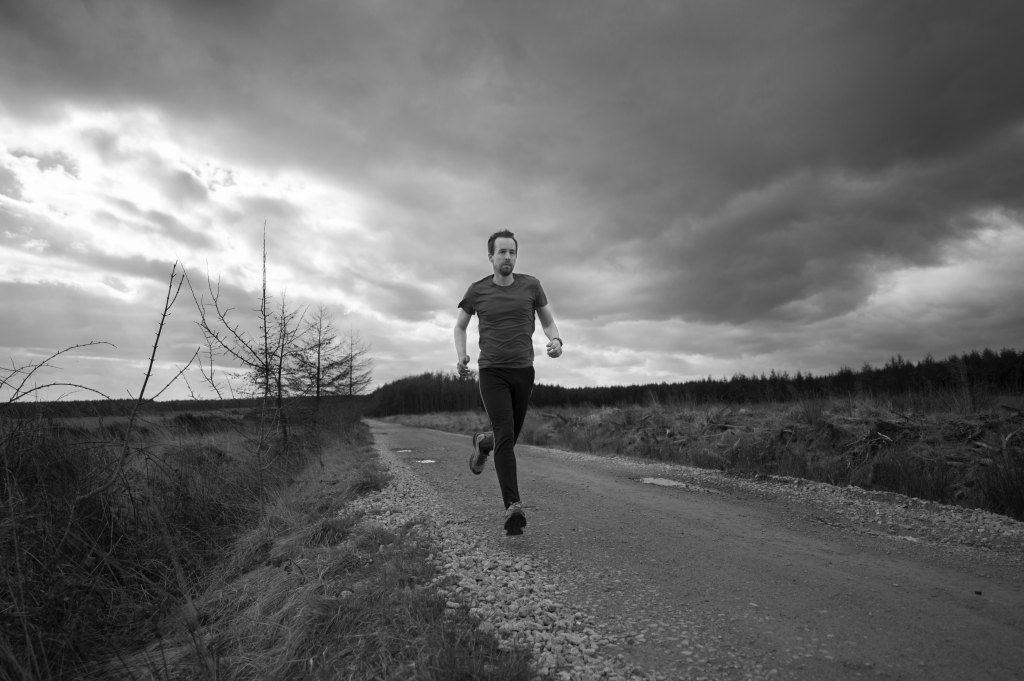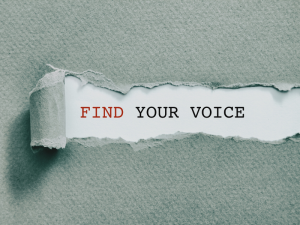It’s a rhetorical question.
Are you about to plunge into the perennial pitfall of making unrealistic New Year’s resolutions for the year ahead? While the start of a new year is an opportunity to press the reset button and may inspire a renewed sense of purpose or hope to begin new adventures. Many people make self-promises and set impossible goals that even a magical unicorn couldn’t achieve.

New Year resolutions are a common worldwide tradition found in many cultures and faiths, in which people resolve to change an undesired trait or behaviour … blah blah. To accomplish a personal goal or otherwise improve their life… blah blah.
Every December, my treatment diary fills with the fallout of the season; injuries incurred from decorating the Christmas tree and hanging festive lights (please use a ladder) strains from moving furniture and lifting enormous turkeys (any new leftover recipes?) To falls from ice skating on the numerous lovely temporay rings that pop-up in my town (your Torvill and Dean days are long gone). A flurry of January injuries swiftly follows; strains, sprains, pulls and the ouchy, ouch, ouchs, from over-enthusiastic new year fitness regimes, and more outdoor skating. Great for business but it also makes my heart sink.
Anyway, back to new year, new you! Are you determined to spend January in the new resolutions zone; digital detox, sugar, caffeine and alcohol-free, Veganuary. Eating ‘healthy’ home-cooked fresh food every day, community volunteering, exercising daily, writing a journal, meditating, taking up crossfit, being grateful, kind and patient to everyone that crosses your path including your grumpy boss, grouchy colleagues and frenemy friends… Phew… I’m a already feeling overwhelmed and a tad exhausted.
Not wanting to put a damper on any newfound new year (and new decade) optimism, but it’s a considerable challenge to go so hardcore to become your super invincible self – every day – forever?! Do you have strategies for the sticky, trip-you-up obstacles of life or have an alternative plan if disaster strikes? Life does what it does; you get a virus; the weather is rubbish, work is uber busy, you pick up an injury. Sometimes life-hinders-life, and before you know what-is-what, that budding superhero feeling becomes one of disappointment or arghh worse still failure. Nothing damages one’s self-esteem and self-belief like the feelings and fall out associated with not succeeding.
If truth be told, in almost all cases, new year resolutions are unachievable. A 2014 study reported that 35% of participants who broke their New Year’s resolutions admitted they had unrealistic goals, and many people claimed they made too many. An earlier study in 2007 showed that 80% of those who set New Year resolutions fail, even though more than half of the 3000 participants were confident of success at the beginning. For these reasons, and many others when asked, I advise my patients and anyone else that will listen to skip the January resolutions malarkey this year and every year.
It’s my opinion that January is a tough month, along with Febraury the weather is usually cold, grey and wet, miserable unless of course you love a British winter. Many people struggle with their energy levels and mood at this time of the year and would much rather be hibernating than pounding the pavements at dawn or giving up their favourite food and drink. Unrealistic resolutions and demanding expectations just add stress to the fallout from Christmas, which is often not the “most wonderful time of the year. ” but considered by mnay to be the most stressful time of the year.
Perhaps there is a better way to succeed with your desired change and thrive at the start of this decade. One option could be to use the start of the year to plan your desired goals and delay taking action until there is a carpet of jewel-like and scented spring bulbs to cheer you on. Well, they [spring flowers] always brighten my day, and the new light of spring brings with it optimism and less slippy paths if you are taking up road running.

However, if there is no stopping you starting today, achieving success needs planning, preparation and the right support in place. Setting personal goals is a constructive first step; research shows that women respond best to going public. So write your resolution down (just one, and choose carefully) on a large sheet of paper, and place it where you can see it daily… yikes! Tell your friends and family about your intention and ask them to support and encourage you to achieve your goal. The same research showed that men respond best to setting S.M.A.R.T goals (see graphic below) Both approaches require persistent and patience; new habits take time to bed in, and it worth remembering that everyone slips up from time to time, after all most superheroes are simple humans under their costumes, but that doesn’t mean you should give up. Reflect, reset and resume.

Happy new year! May the new decade bring all you need, all you desire and give you everything you deserve.
See below for tips which might help you reach your goals and thrive whatever the time of year.
Tips for thriving whatever the time of year.

Sleep to success
There is the reason sleep deprivation is considered a form of torture. Poor quality and lack of sleep can lead to a huge array of physical, mental and emotional health conditions. Make this the month to tackle this if it’s a problem for you. In an ideal world, you should wake refreshed energised and ready for the day ahead. Read more about sleep here (opens in a new tab)
Movement matters
Move more of yourself, and more often, most people need to exercise to compensate for the lack of movement in their daily life. If you are new to exercise or don’t like it. Seriously, get over it! You to move the thing you carry yourself around in – your body. “Motion is more than just lotion”
Get a little more active; a simple daily walk is a natural, fuss-free way. Start with 10–30 mins and see how you feel in a few weeks. Or this might be a good time to try a class; group exercise brings a host of benefits. Or if that not for you, book an individual sessions to get an exercise plan customised to meet your specific goals. If you are already active, shake up your routine, add weight, more resistance or try something new.
Dismiss distractions
If you spend (waste) time mindlessly doing things on your phone or checking social media, try using the screen time monitor on your device to get your habits in check, you might be shocked by your daily time total. Managing distractions could make you more productive or offer you more precious relaxation time. I had a social media holiday last August; it changed my life in so many positive ways that I haven’t gone back – yet.
Understand your worth
When you know who you are, what you believe in, and what matters to you, you’re less likely to be concerned with what other people think. Possessing self-confidence and self-belief is not always easy, but knowing your self-worth is the framework on which to build achievements and relationships, and your ability to keep going when life gets tricky, it’s part of our learned resilience. It’s a waste of energy and time to worry about what other people think of you.
Strangers and acquaintances will always offer their opinion, so the sooner you can let this wash over you, the more liberated you will feel and the more resilient you will become. Before you can succeed in any lifestyle change, you need to take ownership of the life you have now. If you are looking for a reason not to do so, I hear you; you’re too busy, too tired or too time-poor, but these are often the excuses we used to avoid owning our “stuff”. Part of taking ownership of life is reflecting on how you got to your current place, and understanding how you might be enabling habits and decisions. Are you genuinely ready for the work and adjustments that change involves? Ready to get out of your way and stop making excuses?

Are you playing the victim?
Might seem a harsh question, but one that often needs exploring. A victim mentality means that you blame others and circumstance for the unhappiness or lack of success you feel. While it’s important to distinguish between being a genuine victim; no one can thrive in this position; the victim needs to move into the survivor role to move on with life and thrive. Playing the victim is usually fuelled by fear, anger or hopelessness; this belief results in behaviours of stress, constant avoidance, blame, and unfair accusations. While none of us can control all of life, resisting responsibility is not helpful either.
Read about the affects of stress here (opens in a new tab)
Face your fears
A little fear is a healthy, helpful human response designed to protect us from harm, assist us in recognising the danger and guiding us to make safer choices. Humans evolved to be fearful; our brain has a negativity bias, which primed us to be vulnerable to being frightened and intimidated by real or perceived threats. While this might have been useful to the survival of our ancestors back on the savannah.
Routinely overestimating threat and underestimating opportunities also minimises our internal resources for dealing with threats or maximising opportunities - not the most beneficial way to promote quality of life or thrive. In the twenty-first century, most people will still react more strongly to negative stimuli than to equally positive ones because negativity bias is hard wired into our system. Which mean many people have become fearful of things that aren’t dangerous, such as asserting themselves, being alone, intimacy, ageing, ending a relationship, or failing. All of which ends up creating more significant problems and brings uncomfortable sensations, thoughts and feelings.
Interestingly, the simple act of facing your fears helps build self-reliance and resilience. Facing our fears is essential to overall well-being, gather courage and begin making progress towards your goals. You’ll realise that what you feared wasn’t so scary, after all which creates strength to tackle other things that may feel are scary. Wow, that’s powerful!
Read: “Feel the fear and do it anyway.” - Susan Jeffers
It’s okay to need and ask for support.

- Who do you turn to when you need support?
- Don’t believe your worries are significant enough?
- Too proud to ask?
- No matter what, if you are struggling, ask for help.
Support options (UK)
- Your GP.
- Support service at your place work or study.
- Self -referred NHS talking therapies, search ww.nhs.uk with your postcode.
- Samaritans – www.samaritans.org.uk / T:116 123 (free 24-hour helpline).
- Cruse Bereavement Care – www.crusebereavementcare.org.uk / T:0844 477 9400
- Anxiety UK – www.anxietyuk.org.uk / T:03444 775 774
- Shout – https://www.giveusashout.org / Text 85258 24/7







